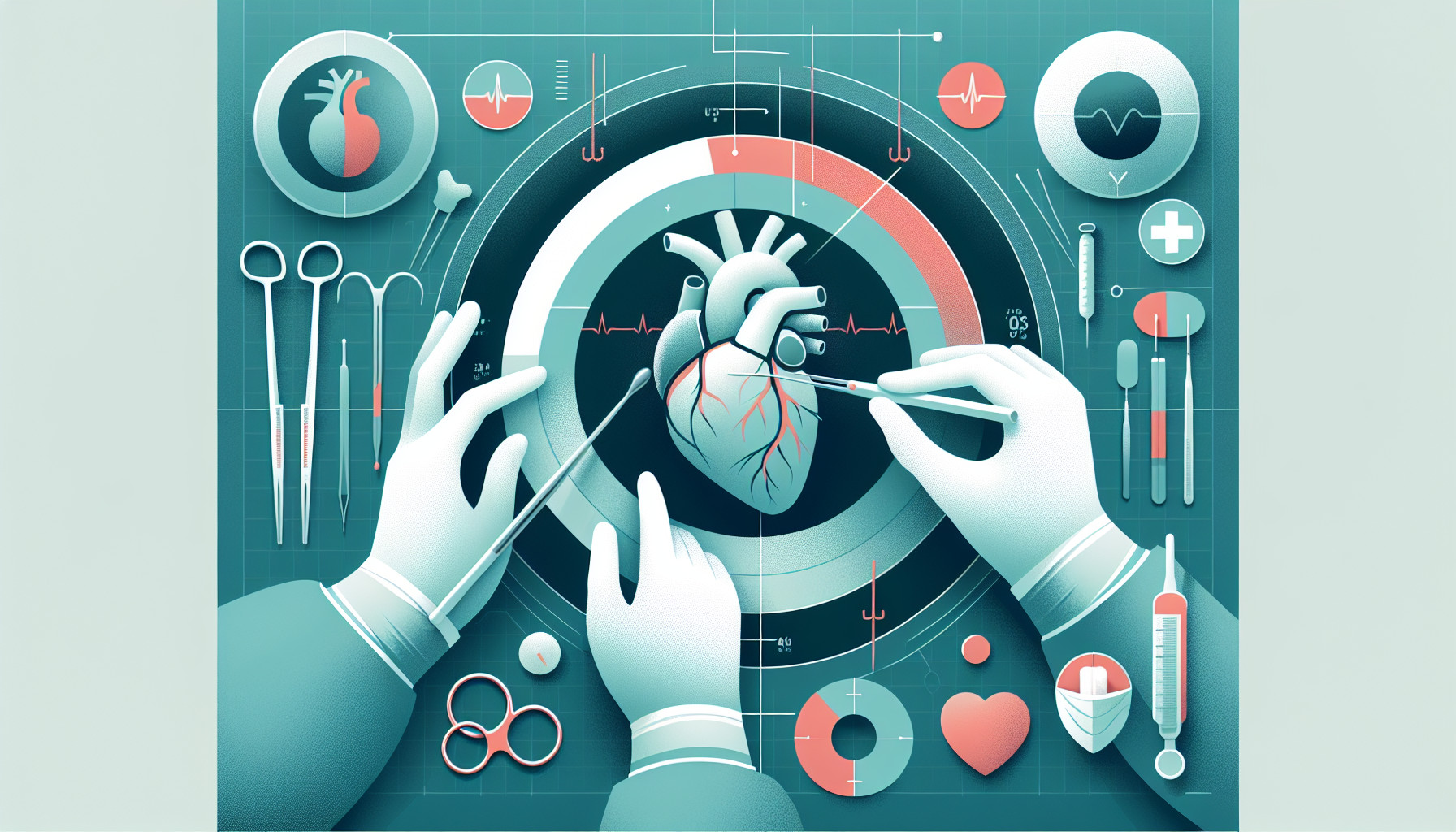Our Summary
This research paper is about the advancements in heart disease treatments, specifically those related to irregular heart rhythms. Traditional treatments like medications, electrical shocks (cardioversion), or surgery are now frequently replaced by a procedure called cardiac ablation. To ensure the best care for patients undergoing cardiac ablation, it’s important for nurses to understand how the procedure works and how to properly care for patients afterward. The article aims to educate nurses on the procedure and post-procedure care, as there isn’t much literature on this topic specifically for nurses. It focuses on common cardiac ablation procedures for certain types of irregular heart rhythms.
FAQs
- What is the focus of this research paper?
- Why is it important for nurses to understand the cardiac ablation procedure and its post-procedure care?
- What are some traditional treatments for irregular heart rhythms that are now frequently replaced by cardiac ablation?
Doctor’s Tip
One helpful tip a doctor might tell a patient about cardiac ablation is to follow all pre-procedure instructions carefully. This may include fasting before the procedure, stopping certain medications, and avoiding food or drink for a certain period of time. By following these instructions, the patient can help ensure the success and safety of the procedure. It’s also important for patients to communicate any concerns or questions they may have with their healthcare team before the procedure.
Suitable For
Patients who are typically recommended for cardiac ablation are those with certain types of irregular heart rhythms, also known as arrhythmias. Some common arrhythmias that may be treated with cardiac ablation include:
Atrial Fibrillation (AFib): This is the most common type of arrhythmia and occurs when the upper chambers of the heart (atria) beat irregularly and rapidly. Patients with persistent or recurrent AFib that does not respond well to medications may be recommended for cardiac ablation.
Atrial Flutter: Similar to AFib, atrial flutter is a rapid and regular heartbeat that originates in the atria. Patients with symptomatic atrial flutter may benefit from cardiac ablation.
Supraventricular Tachycardia (SVT): SVT is a rapid heart rate that originates above the ventricles. Patients with recurrent episodes of SVT that do not respond well to medications may be candidates for cardiac ablation.
Ventricular Tachycardia: This type of arrhythmia originates in the ventricles and can be life-threatening. Patients with ventricular tachycardia that is not controlled with medications or other treatments may be recommended for cardiac ablation.
It’s important for healthcare providers to carefully evaluate each patient’s individual case and determine if cardiac ablation is the most appropriate treatment option. Patients with structural heart disease, certain risk factors, or other underlying health conditions may not be suitable candidates for cardiac ablation. Additionally, patients should be counseled on the potential risks and benefits of the procedure before making a decision.
Timeline
Before the procedure:
- Patient meets with a cardiologist to discuss symptoms and treatment options
- Cardiologist may recommend cardiac ablation as a treatment
- Patient undergoes pre-procedure testing, such as blood tests and imaging scans
- Patient may need to stop certain medications before the procedure
- Patient is instructed on fasting before the procedure
During the procedure:
- Patient is prepped and sedated for the procedure
- Cardiologist inserts catheters into the heart through blood vessels
- Cardiologist uses radiofrequency energy or cold temperatures to destroy abnormal heart tissue causing irregular rhythms
- Procedure typically lasts 2-4 hours
- Patient is monitored closely throughout the procedure
After the procedure:
- Patient is taken to a recovery area for monitoring
- Patient may experience chest discomfort, fatigue, or mild symptoms of irregular heart rhythms
- Patient is typically discharged the same day or the next day
- Patient is advised to rest and avoid strenuous activities for a few days
- Patient may require follow-up appointments with the cardiologist for monitoring and medication adjustments
Overall, cardiac ablation is a minimally invasive procedure that can effectively treat certain types of irregular heart rhythms. It is important for nurses to educate patients on what to expect before and after the procedure, as well as provide proper post-procedure care to ensure a successful recovery.
What to Ask Your Doctor
- What is cardiac ablation and how does it work to treat irregular heart rhythms?
- Am I a candidate for cardiac ablation and why do you recommend this procedure for me?
- What are the risks and potential complications associated with cardiac ablation?
- How successful is cardiac ablation in treating my specific type of irregular heart rhythm?
- What is the recovery process like after cardiac ablation and how long will it take for me to fully recover?
- Will I need to take any medications after the procedure and for how long?
- Are there any lifestyle changes I need to make after undergoing cardiac ablation?
- How often will I need follow-up appointments or monitoring after the procedure?
- Are there any long-term effects or risks associated with cardiac ablation that I should be aware of?
- Can you explain the procedure in more detail and answer any other questions or concerns I may have about cardiac ablation?
Reference
Authors: Shoulders B, Mauriello J, Shellman T, Follett C. Journal: Dimens Crit Care Nurs. 2016 Sep-Oct;35(5):255-67. doi: 10.1097/DCC.0000000000000201. PMID: 27487751
